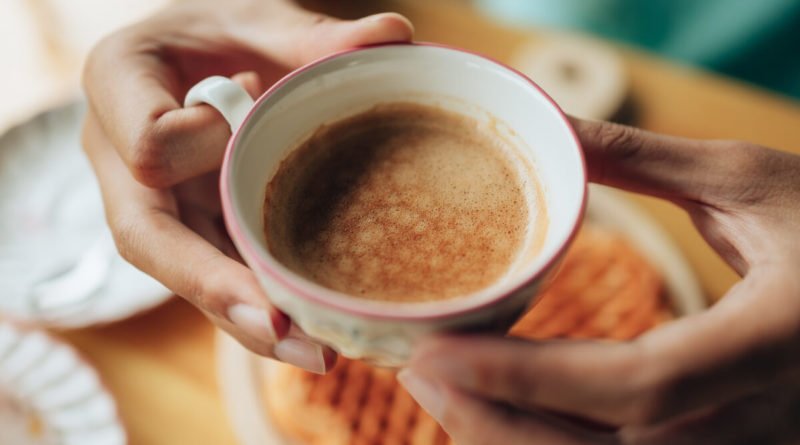Want to Lose Weight? Add a Bit of Exercise to Your Coffee
Coffee is the morning elixir of the masses. In addition to the benefits of feeling awake and refreshed, studies have discovered that for women, drinking coffee can assist with the reduction of body fat, is associated with increased fat burning in aerobic exercise, and improves exercise performance.
A study published in The Journal of Nutrition found that women aged 20 to 69 in the U.S. who drank two to three cups of coffee a day had 2.3 percent less total body fat than women who did not drink coffee and 2.8 percent had less trunk fat. While the men in the study aged 20 to 44 who drank two to three cups of coffee each day had 2.8 percent less total body fat and 3.4 percent less trunk fat than those women of the same age who did not drink coffee. Overall, the study found that the effect of consuming coffee was less obvious in men’s body fat.
The study showed that drinking coffee was especially helpful in reducing obesity in the torso area of women. Researchers believe that the inclusion of coffee and its active ingredients in a healthy diet can help reduce the risk of obesity-related chronic diseases.
A study by the Department of Physiology of the University of Granada in Spain also found that caffeine in coffee can enhance exercise performance by promoting fat oxidation.
Researchers tested 15 men, with an average age of 32, who were given three mg of caffeine for each kilogram of body weight or a placebo at 8 a.m. and 5 p.m. every day, followed by half an hour of rest to ensure absorption, followed by exercise testing. The results showed that the maximal fat oxidation during exercise increased by an average of 10.7 percent in the morning and 29 percent in the afternoon in the caffeine group compared to the placebo group.
The research team believes that a combination of caffeine intake and moderate-intensity aerobic exercise in the afternoon may be the best solution for accelerating fat burning through aerobic exercise.
In addition to improving aerobic exercise, caffeine can also help improve high-intensity anaerobic exercise performance. A study by Cheng Ching-feng, a professor at the Department of Athletic Performance at National Taiwan Normal University, found that basketball players consuming six mg of caffeine per kilogram of body weight one hour before exercise helped promote anaerobic function by about 11 percent, and delayed the decline in the performance of high-intensity sports.
The study also found that caffeine intake can reduce potassium ion concentration before exercise, which may be related to delaying fatigue after high-intensity exercise.
The research team recommends one to two cups of coffee an hour before exercise or competition for athletes weighing around 154 pounds (70kg). However, sugar added to coffee increases the body’s metabolism effect, which does not help the body to generate energy for exercise.
In traditional Chinese medicine (TCM), people with yin deficiency and high heat, in contrast, should not drink much coffee.
Chen Hsin Hung, a TCM physician at Taiwan’s Joyful HAN Chinese Medicine Clinic, wrote that from the perspective of traditional Chinese medicine, moderate intake of bitterness can strengthen the spleen and stomach and increase metabolism. Coffee itself is warm in nature, sweet and bitter, and drinking it at the right time can indeed help metabolism. However, due to habitual staying up late, irregular work and rest, or high stress, the constitution of yin deficiency, and high heat in modern people, excessive drinking of coffee will cause dryness and heat, and in severe cases, it may cause symptoms such as stomach heat and esophagus reflux.
Chen suggested that for adults with an average weight of 132 pounds (60 kg), the daily intake of caffeine should not exceed 500 mg. A 360 ml cup of Americano-style coffee contains about 150 mg of caffeine.





